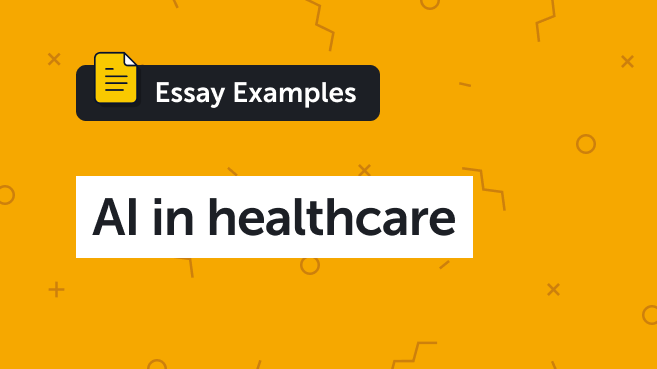AI in Healthcare: Revolutionizing Patient Care and Medical Practice

The integration of Artificial Intelligence (AI) into healthcare signifies a pivotal shift towards more innovative, efficient, and personalized medical care. This transformation is propelled by AI’s ability to analyze vast datasets, enhancing diagnostic accuracy, optimizing treatment plans, and predicting patient outcomes with unprecedented precision. Despite its potential, the application of AI in healthcare introduces complex challenges, including ethical considerations, data privacy concerns, and the need for robust regulatory frameworks. As we stand on the brink of this technological revolution, it becomes imperative to explore AI’s capabilities responsibly, ensuring that advancements in healthcare technology translate into tangible benefits for patients and practitioners alike. This essay will delve into the multifaceted role of AI in healthcare, highlighting its applications, challenges, and the future landscape, guided by insights from leading experts and authoritative sources.
Applications and Benefits of AI in Healthcare
Artificial Intelligence (AI) in healthcare represents a groundbreaking advance, offering both innovative solutions and significant improvements in patient outcomes. AI technologies, including machine learning (ML), deep learning (DL), and natural language processing (NLP), have been instrumental in several key areas:
- Diagnostics: AI algorithms excel in analyzing medical images, such as X-rays and MRIs, with higher accuracy and speed than traditional methods, reducing diagnostic errors and improving patient outcomes.
- Personalized Medicine: By analyzing patient data and genetic information, AI supports the development of customized treatment plans that cater to the individual’s unique health profile, enhancing the efficacy of treatments.
- Predictive Analytics: AI’s ability to process and analyze vast amounts of data enables the prediction of disease outbreaks, patient admissions, and potential complications, facilitating proactive healthcare management.
- Operational Efficiency: Automation of administrative tasks, such as scheduling and patient triage, by AI tools, significantly improves healthcare services’ efficiency and reduces costs.
- Enhanced Patient Care: AI-powered applications, including chatbots and virtual health assistants, provide continuous support and monitoring of patients, improving engagement and adherence to treatment plans.
These applications underscore AI’s transformative potential in healthcare, driving forward a new era of medical excellence and innovation.
Challenges and Risks of AI in Healthcare
While AI presents significant opportunities for healthcare innovation, it also introduces various challenges and risks that must be carefully managed. These include:
- Data Privacy and Security: The vast amounts of data required to train AI models raise concerns about patient privacy and the security of sensitive health information.
- Algorithmic Bias: AI systems can inherit biases present in their training data, potentially leading to unequal treatment outcomes across different patient demographics.
- Transparency and Accountability: The “black box” nature of some AI systems makes it difficult to understand how decisions are made, raising questions about accountability, especially in the case of diagnostic or treatment errors.
- Integration into Clinical Practice: Incorporating AI tools into existing healthcare workflows and systems poses significant logistical and technical challenges.
- Regulatory and Ethical Considerations: Establishing appropriate regulatory frameworks to govern the use and development of AI in healthcare is crucial to ensuring ethical standards are maintained.
Addressing these challenges requires a multidisciplinary approach, combining technological innovation with robust ethical, regulatory, and educational frameworks to ensure AI’s benefits can be realized safely and equitably.
The Future of AI in Healthcare
The future of AI in healthcare is poised at an exciting juncture, with advancements in technology continuing to open up new possibilities for patient care, research, and the overall healthcare ecosystem. This future, however, is not without its challenges. It necessitates a concerted effort from healthcare professionals, technologists, policymakers, and ethical bodies to navigate the complex landscape that AI introduces. Key areas of focus will include enhancing the interpretability of AI systems, ensuring equitable healthcare outcomes across diverse populations, and safeguarding patient data privacy and security.
Moreover, the integration of AI into healthcare will continue to evolve with the development of more sophisticated algorithms, the growing availability of healthcare data, and the increasing computational power. These advancements promise to further personalize patient care, improve diagnostic accuracy, and optimize healthcare operations. Nonetheless, the successful realization of these benefits depends on addressing the ethical, regulatory, and technical challenges that accompany AI technologies.
AI in healthcare represents a profound shift in how medical care is delivered and experienced. It offers the potential to significantly enhance patient outcomes, streamline healthcare operations, and unlock new avenues for medical research. However, realizing this potential requires careful management of the risks and challenges associated with AI technologies. By fostering collaboration among stakeholders and prioritizing ethical considerations and patient-centric approaches, the healthcare industry can leverage AI to achieve better health outcomes for all.
This essay has explored the multifaceted role of AI in healthcare, from its applications and benefits to the challenges it presents and the future it promises. As the healthcare sector continues to navigate this technological revolution, the focus must remain on harnessing AI’s capabilities responsibly and ethically, ensuring that advancements in AI translate into tangible benefits for patients worldwide.
Read also:
- AI, Automation, and Psychotherapy – A Proposed Model for Losses and Gains in the Automated Therapeutic Encounter by H Molden (2024) – This article conceptualizes the impact of increasing automation in psychotherapy, considering AI and automation’s roles in healthcare and their potential to transform therapeutic encounters.
- College Students-in-the-loop for Their Mental Health: A Case of AI and Humans Working Together to Support Well-being by V de Cássia Alves, FE Garcia, C Saud, A Mendes (2024) – This research focuses on mental health issues among college students and proposes a model where AI and human efforts are combined to support students’ well-being, highlighting the potential for AI to aid in mental health care.
- Assessment of Artificial Intelligence Credibility in Evidence-Based Healthcare Management with “AERUS” Innovative Tool by M Sallam, J Snygg, M Sallam (2024) – The study introduces an innovative tool, AERUS, designed to evaluate the credibility of AI in healthcare management. It provides insights into the reliability and trustworthiness of AI applications in healthcare administration.